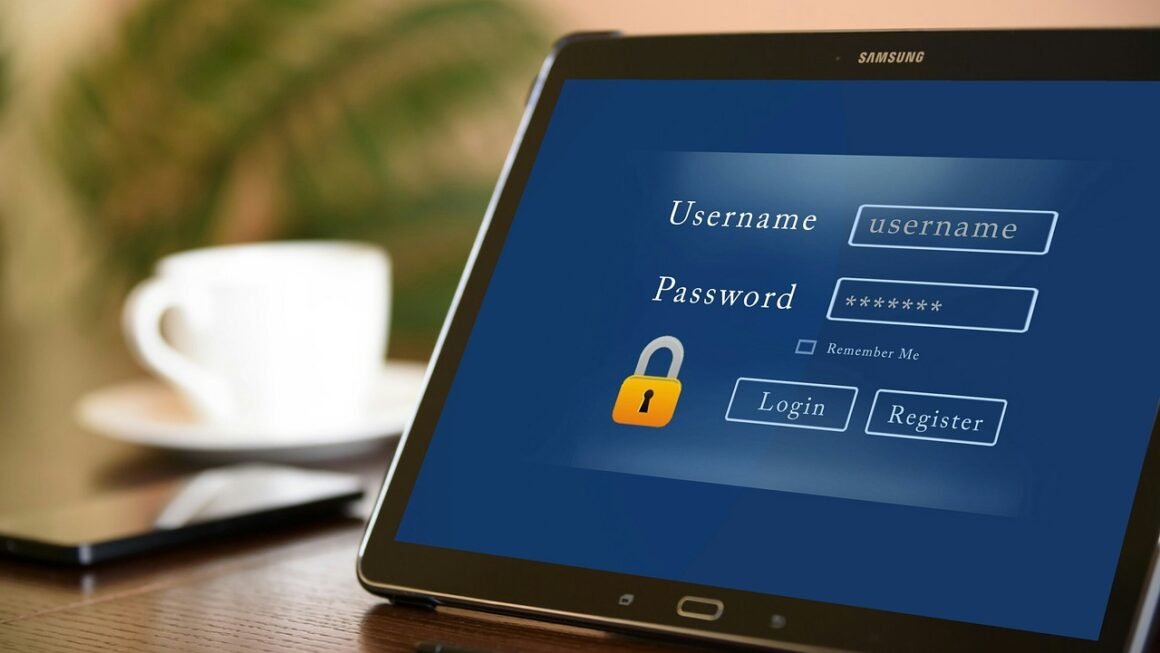Imagine browsing the internet feeling like you’re shrouded in a cloak of invisibility, your online activities shielded from prying eyes. That’s the power a VPN, or Virtual Private Network, provides. In an era where data breaches and online surveillance are increasingly common, understanding and utilizing a VPN has moved from a technical luxury to a digital necessity. This guide will delve into the world of VPNs, explaining what they are, how they work, and why you should consider using one.
What is a VPN and How Does it Work?
Defining a Virtual Private Network
At its core, a VPN creates a secure, encrypted connection over a less secure network. Think of it as a private tunnel through the internet. When you connect to a VPN server, all your internet traffic is routed through this tunnel, masking your IP address and encrypting your data.
The Encryption Process
VPNs use sophisticated encryption protocols to scramble your data, making it unreadable to anyone who intercepts it. Common protocols include:
- OpenVPN: A highly versatile and secure open-source protocol.
- IKEv2/IPsec: Known for its speed and stability, especially on mobile devices.
- WireGuard: A newer protocol designed for speed and security.
The encryption process ensures that even if someone intercepts your data, they won’t be able to decipher it.
How Your IP Address is Masked
Your IP address is a unique identifier assigned to your device by your internet service provider (ISP). When you connect to a VPN, your IP address is masked by the IP address of the VPN server. This makes it difficult for websites and online services to track your location and browsing activity. For example, if you are in New York and connect to a VPN server in London, your IP address will appear to be from London.
Why Use a VPN? Key Benefits
Enhanced Security and Privacy
This is the primary reason many people use VPNs.
- Protecting Data on Public Wi-Fi: Public Wi-Fi networks are often unsecured, making them vulnerable to hackers. A VPN encrypts your data, protecting your sensitive information, like passwords and credit card details.
- Preventing ISP Tracking: Your ISP can track your browsing history and sell this data to advertisers. A VPN prevents your ISP from seeing what websites you visit.
- Circumventing Censorship: In countries with strict internet censorship, VPNs can bypass firewalls and allow access to blocked websites and content.
Accessing Geo-Restricted Content
Many streaming services and websites restrict access to their content based on your location. A VPN can help you bypass these restrictions.
- Streaming Services: Access Netflix libraries in other countries, watch BBC iPlayer from outside the UK, or stream sports events that are blocked in your region.
- Example: Imagine you’re traveling abroad and want to watch your favorite show on Netflix. By connecting to a VPN server in your home country, you can access your usual Netflix library.
Secure Online Transactions
When making online purchases or banking online, a VPN adds an extra layer of security.
- Protecting Financial Information: Encryption safeguards your credit card details and other financial information from being intercepted during transactions.
- Reducing the Risk of Fraud: By masking your IP address, a VPN makes it harder for criminals to target you with phishing scams or other fraudulent activities.
Avoiding Price Discrimination
Some websites and online stores may charge different prices based on your location. A VPN can help you avoid this price discrimination.
- Flights and Hotels: Airlines and hotels often adjust prices based on the perceived affluence of your location. By connecting to a VPN server in a different country, you might find cheaper deals.
- Example: Researching a flight from the US to Europe? Try connecting to a VPN server in a country with a lower average income and see if the price changes.
Choosing the Right VPN: Factors to Consider
Security and Privacy Features
- Encryption Protocols: Look for VPNs that use strong encryption protocols like OpenVPN, IKEv2/IPsec, or WireGuard.
- No-Logs Policy: A VPN with a strict no-logs policy ensures that your browsing activity is not recorded or stored.
- Kill Switch: A kill switch automatically disconnects you from the internet if the VPN connection drops, preventing your data from being exposed.
- DNS Leak Protection: Ensures your DNS queries are routed through the VPN server, preventing your ISP from tracking your browsing activity.
Speed and Performance
- Server Locations: Choose a VPN with a wide network of servers in different locations to ensure optimal speed and performance.
- Bandwidth Limits: Avoid VPNs with bandwidth limits, as they can restrict your usage.
Compatibility and Ease of Use
- Device Compatibility: Ensure the VPN supports all your devices, including computers, smartphones, and tablets.
- User-Friendly Interface: Look for a VPN with an intuitive and easy-to-use interface.
Pricing and Customer Support
- Subscription Plans: Compare different subscription plans and choose one that fits your budget and needs.
- Customer Support: Look for VPNs with responsive and helpful customer support, available through live chat, email, or phone.
Example: Evaluating VPN Providers
Consider two VPN providers, “VPN-X” and “VPN-Y.” VPN-X uses AES-256 encryption, offers a no-logs policy, and has servers in 50+ countries. VPN-Y uses weaker encryption, logs some user data, and has fewer server locations. VPN-X is clearly the better choice in terms of security and privacy.
Setting Up and Using a VPN
Installing a VPN Application
Most VPN providers offer user-friendly applications for various platforms.
Connecting to a VPN Server
Best Practices for VPN Usage
- Always Connect to a VPN on Public Wi-Fi: Protect your data by always using a VPN when connected to public Wi-Fi networks.
- Choose a Server Location Close to Your Actual Location: This will help minimize latency and improve speed.
- Regularly Update Your VPN Application: Keep your VPN application up to date to ensure you have the latest security patches and features.
- Test Your VPN Connection: Verify that your IP address is masked and your data is encrypted by using online tools.
- Be Aware of Potential Speed Reductions: VPNs can sometimes slow down your internet speed due to the encryption process.
Conclusion
In today’s digital landscape, a VPN is an essential tool for protecting your online privacy and security. By understanding how VPNs work and the benefits they provide, you can make informed decisions about choosing and using a VPN that meets your specific needs. Whether you’re concerned about data security on public Wi-Fi, accessing geo-restricted content, or simply protecting your online privacy, a VPN can offer a valuable layer of protection. Take the time to research and implement a VPN solution to safeguard your digital life.



